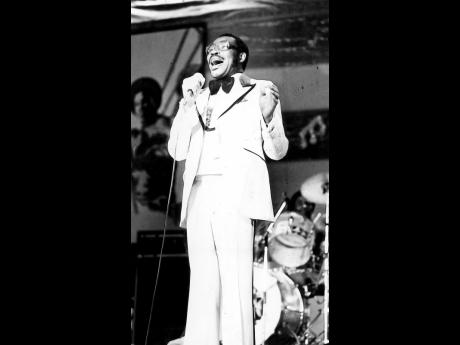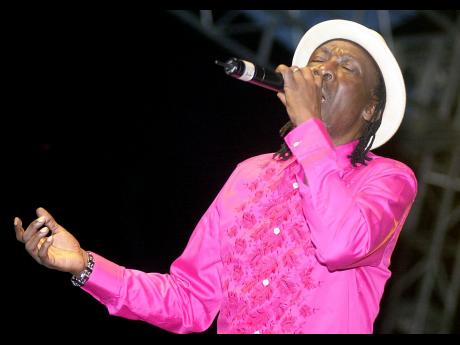The Music Diaries | The rude boy culture of the 1960s
The years following Jamaica's inaugural Independence in 1962 were turbulent ones, especially in Kingston.
One would have expected that with attaining Independence, the nation would be in a united state, and crime would be on the decline. But quite the opposite occurred. There was a sudden escalation of crime, and the rude-boy syndrome suddenly reared its ugly head.
One contributing factor was the large number of young men who migrated to the city in search of jobs. Buoyed and inspired by the throbbing ska beat that had engulfed the nation at Independence, many suddenly fancied their chances of getting into a recording studio without even having their talent assessed.
When that was not forthcoming, it led to discontent and resentment, which sometimes were expressed in outbursts of violence. Ratchet knives and handguns suddenly became an ever-present companion to hoodlums who sought to earn a bread by dishonest means. The emergence of the popular James Bond celluloid adventure movies at the time seemed to have contributed to the lawlessness as many of Kingston's young criminals sought to emulate and name themselves after notorious characters in these action-packed movies.
In the meantime, some vocalists and record producers, in particular, began to realise that there was a large audience and a fledging market for rude-boy songs and immoral messages and duly capitalised on the trend by investing huge sums into record production. Some producers sought to glamorise the phenomenon in their recordings; others tried to condemn it; while some vocalists used the opportunity to send a message to the rude-boys about the impending doom that awaited them.
Stranger Cole, who, along with Richie Stephens and Damian 'Junior Gong' Marley were honoured by Prime Minister Andrew Holness at the Independence Day Grand Gala 2018, may, perhaps, be the first to send a message to the unruly youths through the Duke Reid-produced recording Ruff and Tuff. In the recording, he warned:
"Why lie and try to bite the hand that feed you?
Yes, the good you do lives after you
It will be rough and tough on your side."
Cole followed up with Don't Wear a Ratchet in Your Pocket and Rudies All Around.
The Wailers (Bob Marley, Peter Tosh, Bunny Wailer, Junior Braithwaite, and Beverley Kelso) sent a similar message in nursery-rhyme style in early 1964 with the immortal ska piece Simmer Down. It warned:
"Chicken merry,
Hawk de near
And when him de near
You must beware
So simmer down."
The group, however, seemed to have taken an about-turn when they recorded Let Him Go, Rude-boy and Jailhouse, the latter glamorising the rude boys with:
"Jailhouse keeps empty,
Rudie gets healthy
Baton sticks get shorter,
Oh yeah, rudie gets taller."
Desmond Dekker supported the trend in 1967 with 007 Shanty Town as he sang in the first stanza:
"007 007 at Ocean 11
And now rude boys a go wail
'Cause them out of jail
Rude boys cannot fail
'Cause them must get bail."
Derrick Morgan's Rudies Don't Fear in that same year also fostered the rude boys cause with the chilling lyrics:
"Rudies don't fear,
Tougher than tough
Rougher than rough
Strong like lion
We are iron."
Many pundits believe that songs such as these had a profound influence on youth and contributed immensely to the escalating crime rate during the 1960s bearing in mind the enormous impact that entertainers portray as commanding role models.
Anti-rude boy songs
Alton Ellis was one of the artistes who had a different view and sought to dissuade wrongdoers from their actions. He warned in the recording, Dance Crasher:
"Dance crasher,
Don't break it up
Please don't make a fuss
Don't use a knife to take somebody else life."
He sent similar messages in the recordings Cry Tough, The Preacher, Don't Trouble People and The Blessing of Love - all done for Duke Reid's Treasure Isle record label in the 1960s.
The last cut urged rude boys and bad men to:
"Stop your shootings,
No more killings
Away with ratchets
Show some friendship
Ooh! Shootings everywhere and every day
Send us blessings of love."
The anti-rude boy activist returned in 1971 with Big Bad Boy.
Bob Andy added his voice to the anti-rude boy songs of the 1960s with his recording Crime Don't Pay, a 1966 recording that was Andy's first solo effort at Studio 1. The Rulers had Don't Be Rude. The Silvertones released Gun Fever. The Clarendonians joined the fray with Rude Boy Gone A Jail. Roy Panton sang Control Your Temper, while Leroy Smart rode high on the Jamaican charts in the early 1970s with Badness Don't Pay.
Prince Buster made a dramatic entry in the late 1960s as the 'no nonsense' judge who dished out a minimum sentence of 100 years in the recording Judge Dread. Derrick Morgan, on the other hand called for unity - perhaps the most important ingredient necessary for a peaceful and prosperous Independent Jamaica - when he militantly echoed that sentiment in the recording Forward March:
"Gather together,
Be brothers and sisters,
We're independent
Join hands to hands, children,
Start to dance
We're independent."



